My seven-year-old recently reminded me, after thirty years of forgetting, that there’s a sinister underground current of folk songs being traded on the schoolyards of America, behind garden sheds and under slides, away from the watchful eyes of what in my time were called “yard duties”.
What’s amazing about these songs is that there are dozens of them that seem to be pretty much universal, both geographically and across generations. The one below should certainly be familiar. “Ms. Lucy” has roots that go back at east as far as early 20th Century vaudeville, at which point it was just a single quatrain about a steamboat. Over the decades, children all over the country added more quatrains and variations, until it became the song that so many people now know almost by instinct.
But as familiar as the song may be, it wasn’t until I applied my time-hardened analytical ear to the lyrics that I realized just how strange and wonderful they are. So of course I had to draw them.
Songs like these have a funny, complex life of their own, slowly getting modified and updated, while retaining a few anachronisms. My daughter knows what a “TV set” is, for example, even though she’s never encountered one “in real life.” In the same way, I knew what a steamboat was at age seven because it was already stamped on the culture as a cliché in cartoons.
There are other schoolyard songs I could’ve illustrated that are way funnier, but they’re in such horribly poor taste that they’ll have to wait until I’m too worn and crotchety to worry about offending the public. In any case, I love the teasing word play in this one, and can’t get over that it’s been with me, dormant, all these years. It’s probably a good place to hang the blame on all the hack work I’ve subsequently churned out as a freelancer
Jason Novak is a cartoonist in Oakland, California.
from The Paris Review https://ift.tt/2Mye7h5
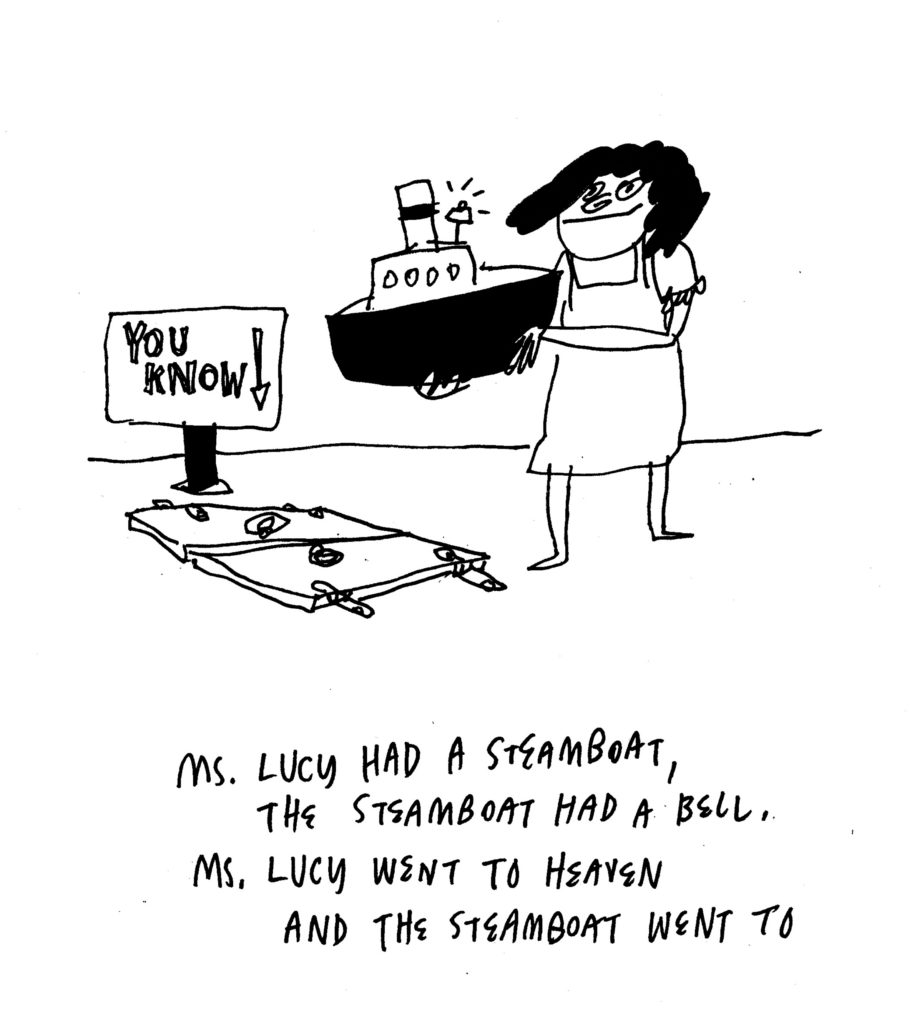

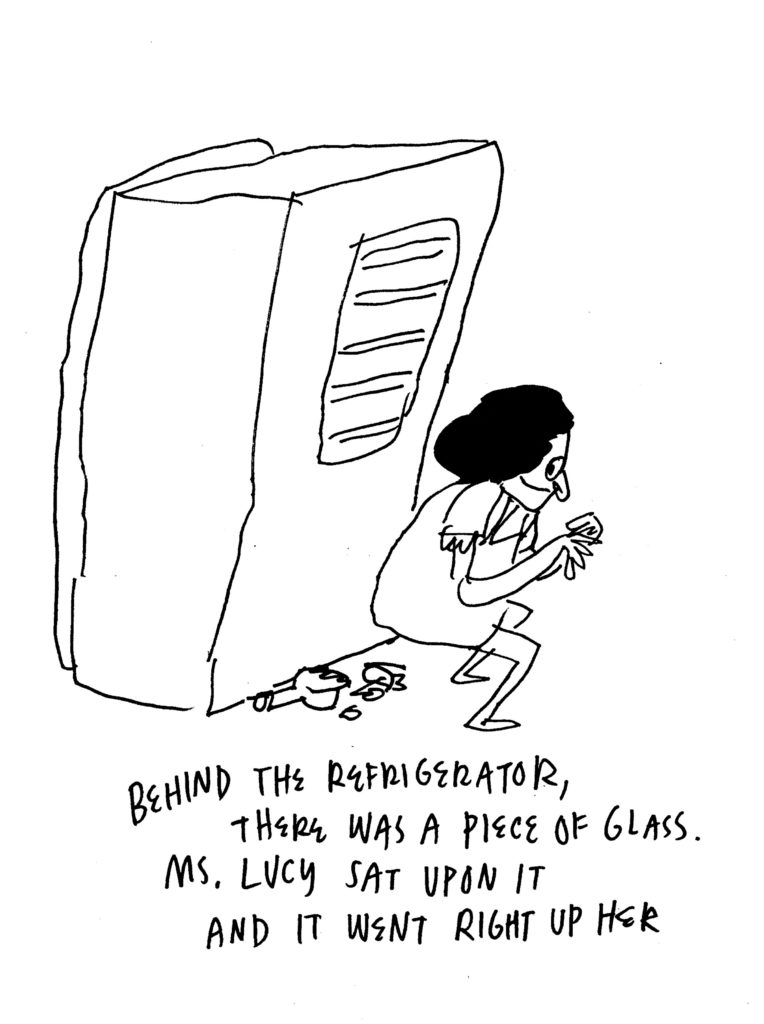
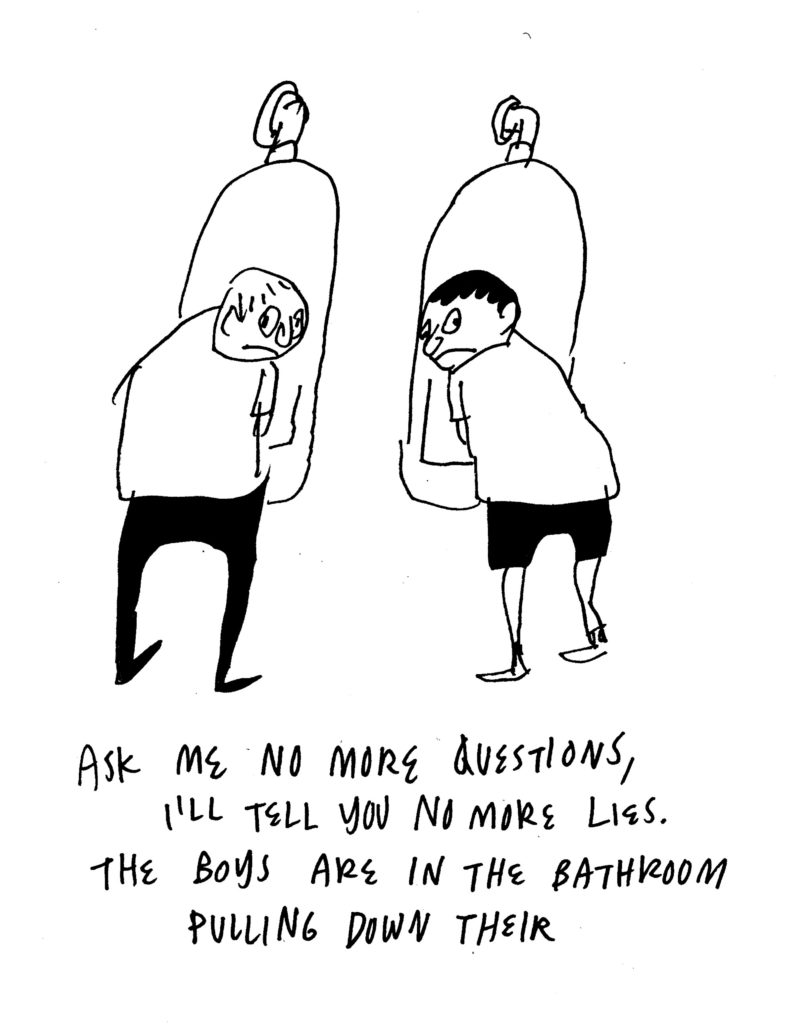
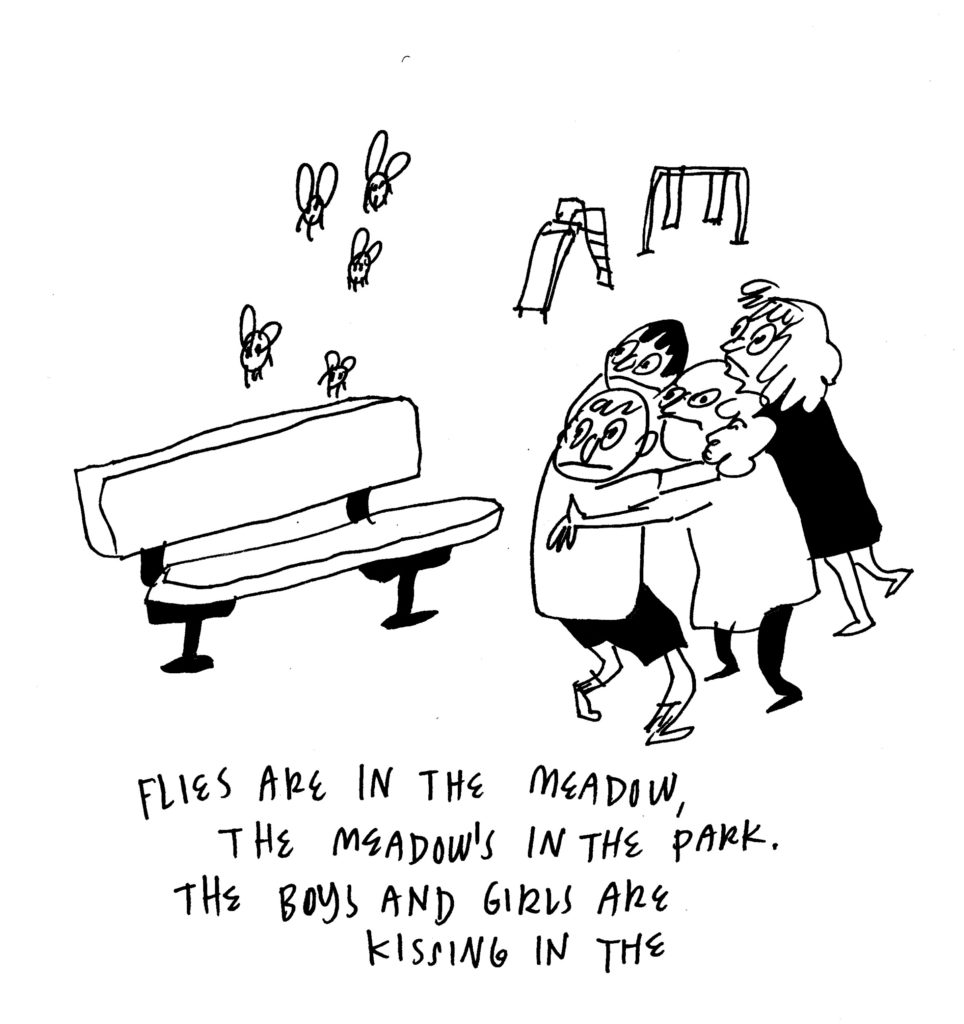


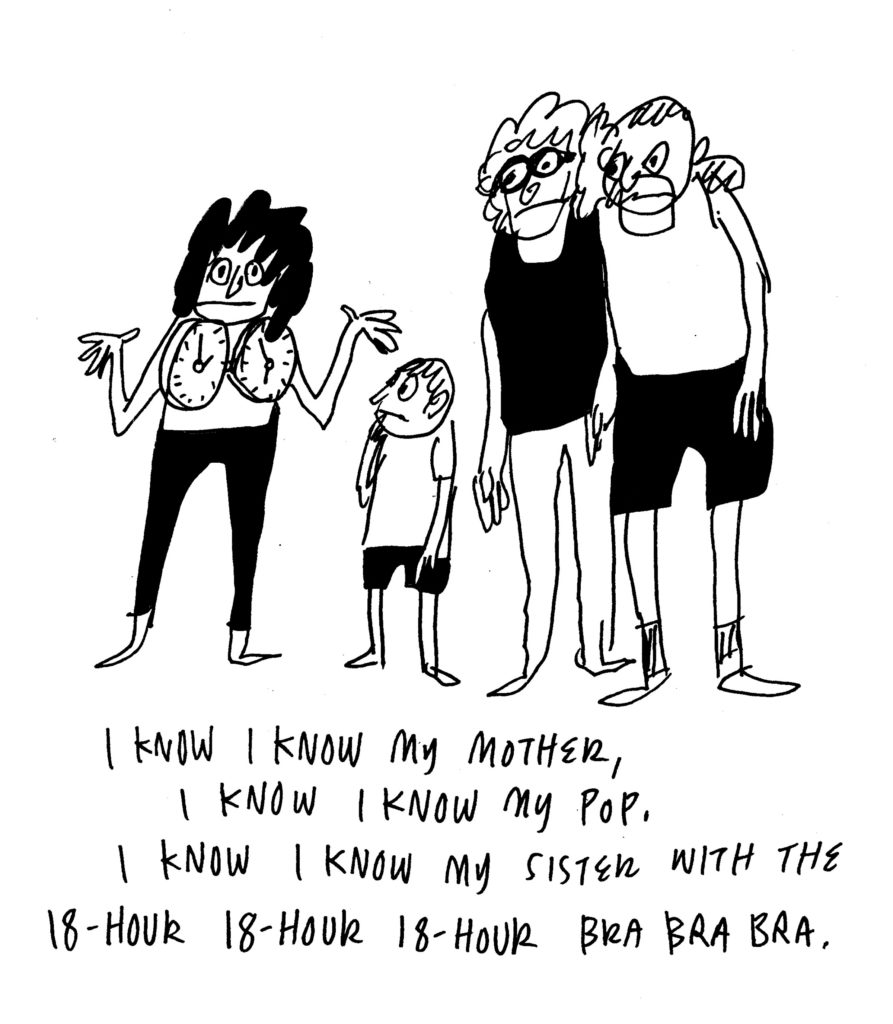
Comments
Post a Comment